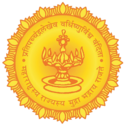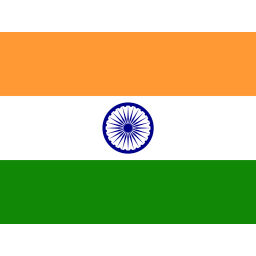Address by Governor on the release of the new edition of Bharatiya Vyavahar Kosh at Raj Bhavan, Pune
Shri Kishore Shashital, Chairman, Bharatiya Vichar Sadhana, Shri Rajan Dhavalikar, Secretary, Bharatiya Vichar Sadhana, Shri Prasad Joshi, Bauddhik Pramukh, Paschim Maharashtra Prant, RSS, Shri Hari Mirasdar, Trustee, distinguished personalities, invitees, ladies and gentlemen,
At the outset, I extend a warm welcome to each one of you to Raj Bhavan.
I have great pleasure in releasing the new edition of the Dictionary of Sixteen Indian Languages ‘Bharatiya Vyavahar Kosh’ published by Bharatiya Vichar Sadhana,Pune.
I understand that the Volume has 40,000 words from 16 Indian languages. It also has several small sentences that can help you strike a conversation with person speaking any of the 16 languages.
The book is a tribute to the vision, dedication, perseverance and hard work of one noble soul, Late Shri Vishwanath Dinkar Narawane.
I was told that the late Shri Vishwanath Naravane, who compiled and edited this ‘Kosh’, travelled from state to state continuously for six years to understand the nuances of various languages, meet language experts and compile the Volume.
By collaborating with many scholars of different languages, he gathered accurate and reliable information about the vocabulary of various languages concerned. Finally he wrote all the words in Devnagari script, which is probably the most difficult part. I think, only an extraordinary person, fired with a missionary zeal can put together such volume.
I was amazed to read the messages, tributes and feedbacks given by the President of India, the Prime Minister, Governors of various states and other dignitaries to the ‘Bharatiya Vyavahar Kosh’ when it was first published.
I congratulate the Bharatiya Vichar Sadhana, Pune for bringing out this third edition of the masterly volume and I would like to convey my appreciation to the members of the Naravane family who are present in our midst today.
Ladies and gentlemen,
While the diversity of the people of India belonging to different regions, belonging to different tribes, religious and communities can be ‘seen’ by the way people speak their language, wear their distinct attires and prepare their food, there is an ‘unseen’ thread of unity, unity of the cultural ethos, that binds people together.
The book brings out and celebrates this basic unity of Indian culture. If you glance through the book, you will realize how similar our languages are.
I understand that on the basis of this Bharatiya Vyavahar Kosh, a mobile app is being prepared to facilitate the young generation to know about the equivalent words, phrases or sentences from one Indian language to another. This is an excellent initiative.
Ladies and gentlemen,
According to the 2017 edition of Ethnologue, a language reference published in the United States, there are 25 languages spoken by 50 million or more people in the world. It is a matter of immense pride that six of these 25 languages are Indian languages. These are Hindustani or Hindi, Bengali, Punjabi, Telugu, Tamil and Marathi.
Every language has its own dialects. I understand that Marathi alone has 60 different dialects ! This is the beauty of the language. It should be our collective endeavor, not only to preserve our languages, but also to preserve every dialect.
Language is like a River. It flows through time from its earliest sources, picking up new meanings at each confluence.
Indian languages are repositories of our rich literature, customs and traditions, culture, art and heritage. When we preserve our language, we preserve our own cultural heritage.
Research has shown that education in mother tongue improves the understanding and cognitive skills of children. UNESCO has consistently encouraged mother tongue instruction in primary education. It has been observed that children having their primary education in mother tongue are more likely to enroll, continue education and succeed in school. Another study shows that children in multilingual education tend to develop better thinking skills compared to their monolingual counterparts.
Ladies and gentlemen,
For a language to grow, it must be adopted by society, especially by the young generation, by students, teachers, academicians, business leaders, writers and so on. It must be enriched by its writers. This will happen, when we create a sense of pride about our language in the minds of people, especially among children and the young generation.
In the years to come, preserving different languages and scripts will also become a major challenge.
I feel extremely worried that our young generation is drifting away from our mother tongue. Technology has made us write SMS and whatsapp messages in the English language. Our young generation is finding difficult to read and write in our own scripts.
We have to view this challenge seriously if we wish to our languages to survive and thrive.
I will appeal to Bharatiya Vichar Sadhana to suggest ways and means to preserve our languages, dialects and scripts.
We need to think how advancements in technology can help us to reach out to the new generation.
According to the ‘UNESCO Atlas of the World’s Languages in Danger’, there are a record 197 Indian languages and dialects that are endangered severely or critically or are on the verge of extinction. Today there is a movement to save our rivers. Likewise there is a need to save our languages and dialects, which are rivers of our cultural knowledge and wisdom. When a language dies, the loss is irreversible.
I will call upon the Bharatiya Vichar Sadhana to actively encourage and facilitate translation of good works from one language to another and also honour young translators.
I will also appeal to the Sadhana to encourage children’s writings and writings for children.
Once again I congratulate the Bharatiya Vichar Sadhana for bringing out the third edition of Bharatiya Vyavahar Kosh and wish the publication all success.
Jai Hind ! Jai Maharashtra !!



